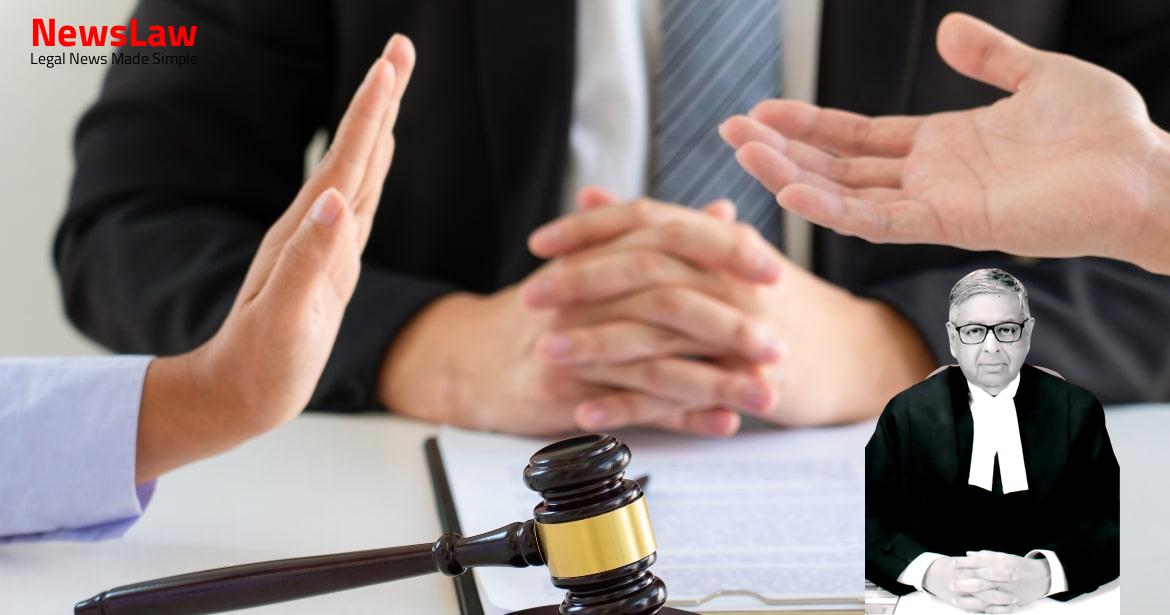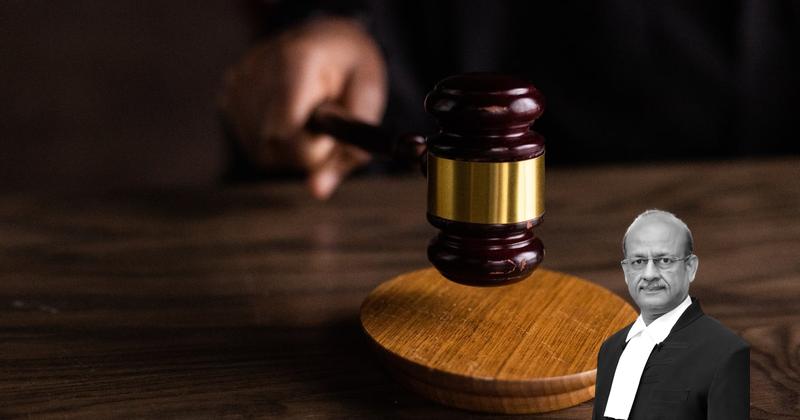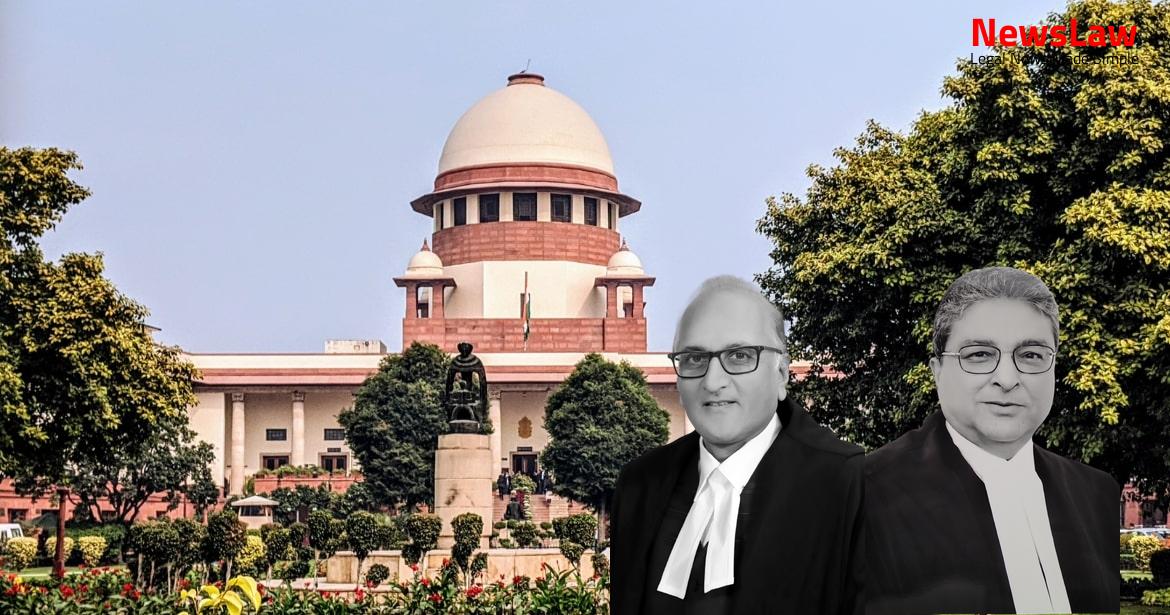In a significant ruling by the Supreme Court of India, the order of the High Court dated 3 May, 2018, has been set aside in the case concerning the disclosure of information in election affidavits. The case revolves around the importance of transparency in electoral processes and ensuring voters have access to crucial information about candidates. Stay tuned to learn more about this landmark judgement!
Facts
- Leave granted to the appellant – Satish Ukey, a practicing Advocate of the Bombay High Court.
- Appellant filed a criminal complaint against the Chief Minister of Maharashtra under Section 125-A of the Representation of the People Act, 1951.
- Appellant also challenged the election of the Chief Minister before the High Court through Election Petition No.1 of 2014, which was dismissed on 19 August 2015.
- Appellant alleges an infraction of Section 125-A by the Chief Minister, seeking prosecution in a court of competent jurisdiction.
- The complaint alleged that the first respondent did not mention details of two criminal cases in the affidavit accompanying the nomination papers.
- The two cases were Summary Case No.231 of 1996 (under Section 500 of IPC) and Regular Criminal Case No.343 of 2003 (under Sections 468, 471, 218, 467, 420 and 34 of IPC).
- The allegation stated that the first respondent had knowledge of these cases but did not disclose them.
- The learned Sessions Judge remanded the matter back to the trial court for a fresh consideration.
Also Read: The Rafale Deal Secrecy Case: Supreme Court Judgment
Issue
- The issue of whether disclosure of a candidate’s assets, qualifications, and involvement in criminal cases is necessary for informing voters was raised.
- The Court emphasized the importance of voters being educated and informed to make intelligent decisions on whom to vote for.
- The relevance of Sections 33-A and 125-A of the 1951 Act, Rule 4A of the 1961 Rules, and Form-26 in ensuring transparency and providing voters with relevant information was highlighted.
Analysis
- The Election Commission was directed to call for details from contesting candidates on criminal record, assets, liabilities, and educational qualification.
- The right to information under Section 33-A is essential for voters to make informed decisions based on candidates’ antecedents and past performance.
- Voters have the choice to consider educational qualifications, property holdings, and criminal records when electing candidates.
- Educated and well-informed voters are crucial for maintaining election purity and a healthy democracy.
- The information required from candidates includes assets, educational qualifications, and any involvement in criminal cases.
- Candidates must disclose cases where charges have been framed or cognizance has been taken by a competent court.
- False statements in affidavits can lead to legal consequences under Section 125A of the Representation of the People Act.
- The amalgamation of two separate affidavits into Form 26 simplifies the information disclosure process for candidates.
- Candidates are mandated to provide information on cases where a competent court has taken cognizance, in addition to cases with framed charges.
- Concealing information in Form 26 affidavits can result in legal action under Section 125A.
- Failure to disclose cases where cognizance has been taken by the court hampers the voters’ right to crucial information.
- The Third Amendment to the RP Act should have encompassed disclosure of cases where cognizance has been taken to ensure transparency.
- The Ministry of Law and Justice notified the revised Form 26 in 2012, outlining the requirements for filing affidavits.
- Political parties were instructed to distribute the notification and guidelines on filing affidavits to their units.
- Periodic elections are conducted in democracy for efficient governance and the benefit of citizens.
- The Election Commission was directed to issue revised instructions to implement Section 33-A as per the Court’s judgment.
- Directives from a previous Court case were intended to be temporary until legislation was made by the legislature.
- Section 125-A of the 1951 Act may be applicable in the present case to hold the first respondent liable.
- The Court needs to determine the true meaning of phrases in Section 125-A of the 1951 Act related to information disclosure by candidates.
- The key question is whether ‘information’ in Section 33-A includes additional information beyond what is specifically mentioned in the Act.
- After legislative action, the Court must independently assess if the information required is sufficient for voters’ rights.
- Points of disclosure indicated by the Court should be considered significant, and significant deviations should not be allowed.
- Section 33-A of the 1951 Act required candidates to furnish information about criminal cases where they were convicted or charges were framed against them.
- The directive from the Supreme Court in the case of Association for Democratic Reforms emphasized the importance of candidates disclosing their criminal records.
- The case of People’s Union for civil Liberties (PUCL) v. Union of India addressed the discrepancy in the language of Section 33-A and the Court’s directives.
- The Court clarified that cases where cognizance has been taken should also be included in the information provided by candidates.
- Form 26, the prescribed affidavit to be filed by candidates, was amended to require disclosure of cases where cognizance has been taken by the Court.
- Candidates failing to provide accurate information or concealing relevant details in their affidavit could face penalties as per Section 125-A of the 1951 Act.
- The Rule is aligned with Section 33-A of the 1951 Act.
- Section 33(1) requires information to be provided in accordance with the Rules.
- Additional information must be provided as per Sections 33(1)(i) and (ii).
- The candidate’s affidavit must mention cases where charges have been framed for punishable offences with imprisonment for two years or more, and cases where cognizance has been taken by the court.
Decision
- Clause (6) of Form 26 deals with conviction.
- The appeals are allowed.
- The order of the High Court dated 3 May, 2018 is set aside.
Case Title: SATISH UKEY Vs. DEVENDRA GANGADHARRAO FADNAVIS
Case Number: Crl.A. No.-001515-001516 / 2019



